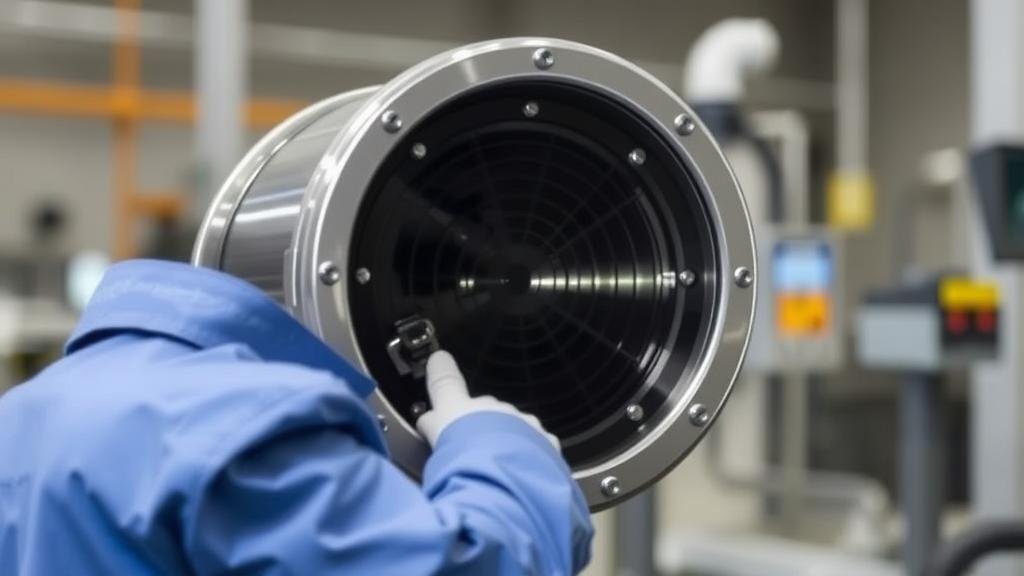Understanding the Role of EMI Filters in High-Tech Metal Detectors
Understanding the Role of EMI Filters in High-Tech Metal Detectors
Electromagnetic interference (EMI) filters play a critical role in the operation and effectiveness of high-tech metal detectors. These devices are pivotal in various applications, including security screening, treasure hunting, and archaeological exploration. EMI filters serve to enhance the performance of these detectors by mitigating noise that could otherwise obscure the detection of valuable metals. This article delves into the functions, significance, and applications of EMI filters in modern metal detectors.
The Basics of EMI and Metal Detection
Electromagnetic interference refers to the disruption of electrical signals caused by external electromagnetic fields. In the context of metal detectors, such interference can lead to false positives or loss of sensitivity. High-tech metal detectors operate on principles of induction, with oscillators generating magnetic fields that stimulate eddy currents in target metals. But, various electromagnetic sources, including power lines and other electronic devices, can introduce noise into these signals.
The Functionality of EMI Filters
EMI filters are designed to suppress unwanted noise and interference, ensuring that the metal detectors signal remains clear and reliable. They work by allowing desired signals to pass while blocking frequencies that may interfere with the operation of the detector. This selective filtering enhances the sensitivity and accuracy of metal detection.
- Active Filters: These filters use active components, such as operational amplifiers, to enhance signal processing capabilities. can be tuned to target specific frequencies, improving filtering precision.
- Passive Filters: These consist of passive components like resistors, capacitors, and inductors. While they are generally less complex, they still effectively allow desired frequencies to pass while rejecting unwanted noise.
Statistical Impact and Real-World Applications
The implementation of EMI filters can significantly enhance the efficacy of metal detectors. Research shows that metal detectors equipped with advanced EMI filtering capabilities can increase target detection rates by up to 30%, particularly in highly electromagnetic environments.
In security applications, such as in airports and stadiums, the efficiency of metal detectors is paramount. For example, a study conducted in airport settings demonstrated that the integration of EMI filters reduced false alarms by over 25%, thereby improving throughput and decreasing wait times for passengers.
Considerations When Choosing EMI Filters
When selecting EMI filters for high-tech metal detectors, several factors must be considered:
- Frequency Range: Filters must be compatible with the operational frequencies of the metal detector to ensure optimal performance.
- Attenuation Requirements: The effectiveness of a filter is often specified by its attenuation, which indicates how well the filter can suppress unwanted signals.
- Environmental Conditions: Metal detectors may operate in varied and challenging conditions; thus, EMI filters should be robust enough to withstand environmental stressors.
Case Studies Demonstrating the Importance of EMI Filters
Several case studies underscore the importance of EMI filters in enhancing metal detector performance. For example, in urban treasure hunting scenarios, where abundant electromagnetic sources are prevalent, metal detectors without EMI filters frequently yield unsatisfactory results. On the other hand, users with EMI-filter-equipped devices reported higher treasure recovery rates and fewer instances of erroneous signals.
Plus, archaeological digs often face rigorous scrutiny regarding interference with sensitive equipment. Useing metal detectors with EMI filters has enabled archaeologists to effectively locate artifacts without the risk of equipment malfunction, thus preserving the integrity of historical sites.
Conclusion and Actionable Takeaways
To wrap up, the role of EMI filters in high-tech metal detectors cannot be overstated. By significantly reducing electromagnetic interference, these filters enhance performance, accuracy, and reliability. For users ranging from security personnel to hobbyist treasure hunters, investing in metal detectors equipped with sophisticated EMI filtering technology is essential for success.
Actionable Takeaways:
- Assess the electromagnetic environment in which the metal detector will be used to determine the necessary filter specifications.
- Research various EMI filter options, weighing their performance metrics against your specific metal detection needs.
- Consider consulting with manufacturers or experts in the field to ensure optimal configurations are in place before field deployment.



